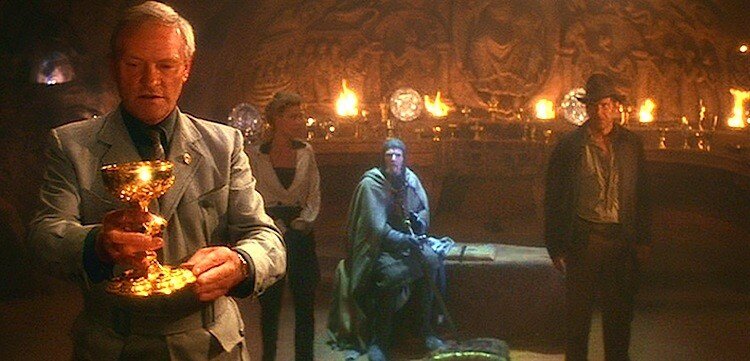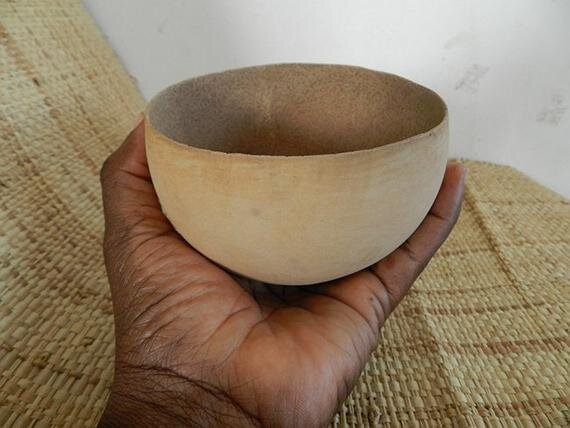King David - The Least of You, Shall Be Greatest Among You
Sovereign Lord,
You created the heavens and the earth and everything in it. Have mercy on us for you are perfect and we are sinners. Your grace and mercy are unending. Holy Spirit we beg your presence in this place. Allow us the gift of clarity; that we may hear your words today and not our own. Continue to guide us along the path you have laid out before us. Our Father, who is in heaven, hallowed be your name. The King of Glory, The Lord of Heavens’ Armies, Yahweh. Amen.
God strategically chose somebody born not of favor nor status but a place of low stature and insignificance. Manual labor instead of paid labor. Somebody toughened from their personal experience in the early years of life instead of a one who might have had their commencement into life slightly less challenging, with the slightly more favorable jobs, and a lesser amount of physical labor. Not a silver spoon but a modest wooden cup.
If I were to give a quick cinematic semblance from a favorite childhood film -- Indiana Jones works his way through the three tests (which are, I must say, inspired) and he walks in on the knight who protects the grail. This Knight is not nearly as funny as the French knight in Monty Python, but he's still pretty good. He sees in Indiana Jones a modern knight come to defend the grail. He is trying to end this misunderstanding when Elsa and Donovan walk-in -- Donovan is the movie bad guy and his motivations are not cloudy like Elsa's. He's an American who aligned himself with the Nazis for this. He wants everlasting life and all the power that goes with it. He wants the grail.
There are many chalices in the temple, though, and the Knight tells him, and I quote, "You must choose ... but choose wisely. For as the true Grail will bring you life, the false Grail will bring Spielberg's special effects people to create a gruesome death, not unlike the deaths in the other Indiana Jones movies. Remember when their faces melted after they opened the Ark? It will be like that only perhaps worse. Yeah, choose wisely."
Indiana Jones and the Last Crusade, 1989
DONOVAN: "I'm not a historian. I have no idea what it looks like. Which one is it?" ELSA: "Let me choose." DONOVAN: "Thank you, Doctor."
Elsa takes about two seconds to choose one, the most beautiful of the golden chalices, and she smiles and hands it to him. She looks over at Indy who looks stricken. Then Donovan drinks from the cup, he begins to realize something is wrong, he grabs Elsa and forces her to watch his horrible Spielberg death. The Knight utters the best line in all three Indiana Jones movies: "He chose ... poorly." -- as Indy started looking through the chalices to find the right one. ELSA: "It would not be made of gold?" INDIANA JONES: "That's the cup of a carpenter." As Indiana Jones picks up the wooden chalice and drinks from it the Grail Knight says: “You have chosen wisely.”
I Samuel 16:1-13 (KJV)
16 And the Lord said unto Samuel, How long wilt thou mourn for Saul, seeing I have rejected him from reigning over Israel? fill thine horn with oil, and go, I will send thee to Jesse the Bethlehemite: for I have provided me a king among his sons.
2 And Samuel said, How can I go? if Saul hear it, he will kill me. And the Lord said, Take an heifer with thee, and say, I am come to sacrifice to the Lord. 3 And call Jesse to the sacrifice, and I will shew thee what thou shalt do: and thou shalt anoint unto me him whom I name unto thee. 4 And Samuel did that which the Lord spake and came to Bethlehem. And the elders of the town trembled at his coming, and said, Comest thou peaceably? 5 And he said, Peaceably: I am come to sacrifice unto the Lord: sanctify yourselves, and come with me to the sacrifice. And he sanctified Jesse and his sons and called them to the sacrifice. 6 And it came to pass, when they were come, that he looked on Eliab, and said, Surely the Lord's anointed is before him. 7 But the Lord said unto Samuel, Look not on his countenance, or on the height of his stature; because I have refused him: for the Lord seeth not as man seeth; for man looketh on the outward appearance, but the Lord looketh on the heart. 8 Then Jesse called Abinadab, and made him pass before Samuel. And he said, Neither, hath the Lord chosen this. 9 Then Jesse made Shammah to pass by. And he said, Neither, hath the Lord chosen this. 10 Again, Jesse made seven of his sons to pass before Samuel. And Samuel said unto Jesse, The Lord hath not chosen these. 11 And Samuel said unto Jesse, Are here all thy children? And he said, There, remaineth yet the youngest, and, behold, he keepeth the sheep. And Samuel said unto Jesse, Send and fetch him: for we will not sit down till he come hither. 12 And he sent, and brought him in. Now he was ruddy, and withal of a beautiful countenance, and goodly to look to. And the Lord said, Arise, anoint him: for this is he. 13 Then Samuel took the horn of oil and anointed him in the midst of his brethren: and the Spirit of the Lord came upon David from that day forward. So, Samuel rose up, and went to Ramah.
Something of note, culture during this ancient period favored the first-born son during this time. The Jewish Virtual Library has the following to say regarding “Firstborn” children in Ancient Israelite society:
Biblical legislation gave the firstborn male a special status with respect to inheritance rights and certain cultic regulations, The latter, a part of a complex of cultic requirements, also applied to the first issue of the herds and the flocks, which, in the popular consciousness, were considered particularly desirable as sacrifices. Abel pleased God by offering Him firstlings of his flock (Gen. 4:4). The requirements of the cultic codes were based on the notion that the God of Israel had a claim on the first offspring of man and beast, which were to be devoted to Him in some manner. This notion also governed the prescriptions regarding the offering of the first fruits (see *First Fruits).
In biblical Hebrew usage the term bekhor, "firstborn [male]," and its derivatives, are somewhat ambiguous. The characterization of the human bekhor as reshit on, "the first fruit of vigor" (Gen. 49:3; Deut. 21:17; cf. Ps. 78:51; 105:36), stresses the relation to the father and adumbrates the first-born's status of principal heir and successor of his father as head of the family. At the same time, the specification that the bekhor be "the first issue of the womb" (peter reḥem; Ex. 13:2, 12, 15, etc.; cf. Num. 8:16), which reflects the religious significance of the first products of the procreative process in human and animal life, stresses the biological link to the mother. Whereas it was usually possible to ascertain the paternity of human beings, this clearly did not hold true of animals, and there was never any attempt to base animal cultic regulations on considerations of specific paternity.
Two rather distinct conceptions can be made out: a socio-legal one, which assigned exceptional status to the first male in the paternal line; and a cultic one which assigned special status to the first male issue of the maternal line. The socio-legal conception was preserved in legislation governing inheritance. In cultic legislation, the bekhor of the legal tradition was required – in order for the cultic regulations to apply – to be also the first issue of his mother's womb.
According to Deuteronomy 21:15–17, a father was obliged to acknowledge his firstborn son as his principal heir, and to grant him a double portion of his estate as inheritance. (Pishenayim means "two-thirds" [see Zech. 13:8], but the intention of the text is that the firstborn shall get whatever fraction a double portion may come to; in the case posited in the text, where there are only two sons, it is two-thirds, but where there are three sons, it is one-half, and so on; cf. the correct inference drawn in BB 123a from I Chron. 5:1ff., which expressly terms Joseph's status as "firstborn" – Joseph received twice the portion of any of his brothers [Gen. 48:5, 22; ef. Rashbam to BB 123a].) This obligation was to apply irrespective of the status of the son's mother in a polygamous family. This inheritance right is termed mishpat ha-bekhorah, "the rule of the birthright" (Deut. 21:17), and the legal process by which the first-born son was so designated is expressed by the verb yakkir "he shall acknowledge." Undoubtedly the acknowledgment involved certain formal, legal acts which are not indicated in biblical literature. In a different context, God acknowledged Israel as his firstborn (Ex. 4:22; ef. Jer. 31:8). A son, addressing his father, might also refer to his own status as firstborn son (Gen. 27:19, 32).
It is evident from the composition of biblical genealogies that the status of bekhor was a pervasive feature of Israelite life. In many such lists there is a formula which specifies the status of the first-listed son. For example, Numbers 1:20: "The sons of Reuben, the firstborn of Israel, were…" (cf. e.g., Gen. 35:23; 36:15; Ex. 6:14, and frequently in the genealogies of I Chron.). Even in genealogies which do not specifically indicate the status of the first son listed, it is clear that he is the firstborn. There are suggestions in the Bible that primogeniture carried certain duties and privileges in addition to the estate rights (see Gen. 27; 48:13; Judg. 8:20; I Chron. 26:10, etc.). The second in line was termed ha-mishneh (I Sam. 17:13; II Sam. 3:3; I Chron. 5:12).
The status of the firstborn in royal succession is not clearly defined. The Israelite kings were often polygamous, and the relative status of several royal wives figured in determining a succession, making the Deuteronomic law cited above appear more like an ideal than a reality so far as the king was concerned. A king might, for a variety of reasons, also be disposed to officially reject one of his sons, Accordingly, there were instances where the first in the royal line of succession did not, in fact, succeed his father. It is not known whether the firstborn in families of the high priests had a special status. From the exception noted in I Chronicles 26:10 it is inferable that the firstborn of a levitical clan was normally placed in charge of his brothers. There is some evidence that the first-born daughter (bekhirah) was customarily married off before her younger sisters (Gen. 29:16ff.; I Sam. 18:17ff.).
In the Genesis narrative one sees how primogeniture was disregarded in the clan of Abraham. The son most suited to carry on the line of Abraham – with its attendant responsibility for transmitting the clan's unique religious belief – was acknowledged as the head of the family even if it meant passing by the firstborn; indeed even if it entailed banishing him from the household (Isaac was preferred to Ishmael, ch. 21: Jacob to Esau, ch. 27).
The terminology employed in Genesis, when compared to that of Deuteronomy 21:17, is problematic, and allowance for a degree of inconsistency in technical usage must be made. In Genesis, Jacob contends with Esau over two matters: first, the bekhorah, which Jacob secured from Esau, who despised it, in exchange for a cooked meal (Gen. 25:29–34); and second, the berakhah ("blessing") which Jacob secured by deceiving his elderly father into thinking that he was blessing Esau (Gen. 27). Of the two terms, the berakhah counted for more, probably because pronouncing the blessing was considered to be the act formally acknowledging the firstborn as the principal heir. Berakhah connotes both the blessing which is to be pronounced and the effects of the blessing, i.e., the wealth transmitted as inheritance. In Deuteronomy 21:17 the term bekhorah refers specifically to the estate rights.
Owing to his favored status, the firstborn was considered the most desirable sacrifice to a deity where human sacrifice was practiced. On the verge of a defeat, Mesha, king of Moab, sacrificed his eldest son and acknowledged successor (II Kings 3:27). In a prophetic passage, the sacrifice of the first-born is singled out as that offering which might be supposed the most efficacious for expiation (Micah 6:7). The importance of the bekhor is dramatized in the saga of the ten plagues God inflicted upon the Egyptians, the last of which struck down their firstborn (e.g., Ex. 11:5; 12:12). This serves as the etiology of the legal-cultic requirement that the male firstborn of man and beast in Israel were to be devoted to God. The Lord acquired title to Israel's firstborn, human and animal, by having spared them when he struck the firstborn of the Egyptians (Num. 3:13).
The priestly tradition goes on to explain that the Levites, as a group, were devoted to cultic service in substitution for all the firstborn Israelites (Num. 3:12). This would seem to be the historicization of a situation that in fact obtained independently of the particular events surrounding the Exodus. The laws governing the redemption of the firstborn (Ex. 13:15; 34:19, Deut, 15:19) presumably derived from a cultic matrix. At one time firstborn sons were actually devoted to cultic service as temple slaves, Nazirites, and the like; subsequently other arrangements were made for supplying cultic personnel while the erstwhile sanctity of the firstborn was lifted through redemption (cf. Lev. 27:1–8, and see below). This underlies the priestly traditions of the history of the levites and their selection for cultic service” (Enterprise, 1998-2019).
I do want to emphasize, David was not first, second, third, or fourth in line. Coming in dead last in an ancient culture which looked only at the first and second-born a primary indicator through which we see evidence that God will use a “nobody” and make him or her a “somebody” for His divine purpose. Emphasizing this point further we go back to scripture, 1 Timothy 4:12 (KJV), “Let no man despise thy youth; but be thou an example of the believers, in word, in conversation, in charity, in spirit, in faith, in purity.”
It seems God made a crucial decision in the following verses as they describe how the Sons of Jesse were chosen to go into battle against the Philistines. The following is an excerpt from 1 Samuel 17:
12 Now David was the son of that Ephrathite of Bethlehemjudah, whose name was Jesse; and he had eight sons: and the man went among men for an old man in the days of Saul. 13 And the three eldest sons of Jesse went and followed Saul to the battle: and the names of his three sons that went to the battle were Eliab the firstborn, and next unto him Abinadab, and the third Shammah. 14 And David was the youngest: and the three eldest followed Saul. 15 But David went and returned from Saul to feed his father's sheep at Bethlehem.
God strategically chose somebody who wasn’t born in a place of favor but a place of low stature. Manual labor instead of outsourceable labor. Somebody who was tough from their personal experience in the early years of life instead of a brother who had it much easier, with the best jobs, and the least amount of physical challenges. Not a silver spoon but a modest wooden cup.


